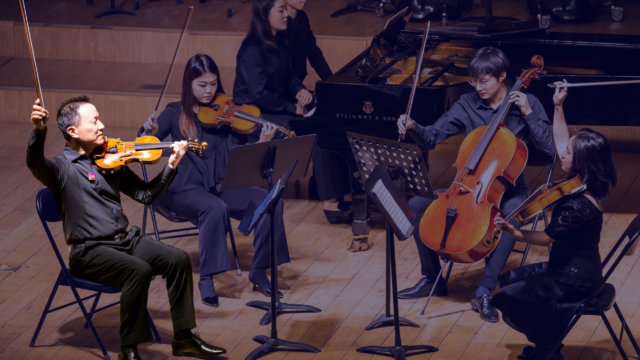Prelude and Table of Contents: Fall 2019
If Beethoven were a candy, how would he taste? A goofy question, admittedly, but at airport duty-free shops everywhere, Mozartkugeln turn Mozart into a confection: an orb of marzipan and dark chocolate enrobed in a flattering foil portrait. The candies shape and mirror popular perceptions of what a classical composer should be: elegant, edible, decorous. Iconoclastic Beethoven broke every kind of mold, and though there is probably a Beethoven-themed treat somewhere, one can’t help wondering what Beethoven-as-candy could be. It would taste of Sturm und Drang and genius.
We’re heading into what would be the composer’s 250th birthday, and orchestras everywhere are performing Beethoven, with announcements of Beethoven performances, festivals, traversals, and tributes nearly every day. Since there’s usually no dearth of Lovely Ludwig Van, what’s behind the fixation? Is the composer a convenient canonic hook, a brand name that sells tickets? His scowling visage has become the visual trope for the tortured, titanic classical composer—and he looks good on marketing materials. Or is there something more at work, something more compelling to do with music and meaning?
In this issue we look at what makes Beethoven great, and we take up new questions about what has long been framed as the composer’s “universality.” As concerns are being raised about the cultural specificity of Western classical music—and the orchestras that play it—the idea of classical music as so ineffably transcendent that it crosses all boundaries is being reconsidered. Some of that reconsideration is being done by orchestras and composers themselves. In new music that works “in dialogue” with Beethoven’s, they are thinking about how to align the complicated urgencies of today with the traditions that got us here in the first place.
Robert Sandla
Table of Contents
- The Score
- Report: Hong Kong Protests – by Ken Smith
- Report: What Brexit Means for Orchestras – by Mark Pemberton
- Board Room – by Trine Sorensen
- Seen and Heard: Conference 2019
- Beethoven: A 250-Year Odyssey – by Ben Finane
- Sound Tracks – by Jeff Lunden
- Pops Evolution – by Steven Brown
- Head of the Class – by Brin Solomon
- Up Close and Personal – by Chester Lane
- 2019 Guide to Symphony Pops Advertisers
- League of American Orchestras Annual Fund
- Coda
Related
Become a member
Thank you for your interest in the League of American Orchestras! We are dedicated to advancing the orchestral experience for all.
Join Now